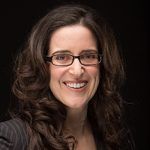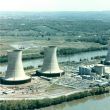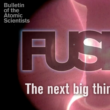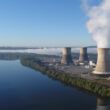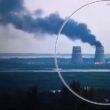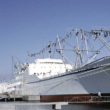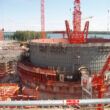Experts, laypeople, and nuance in disaster preparedness
By Sonja Schmid, June 1, 2016
Engineers, psychologists, and sociologists have long puzzled over differences in risk perception—especially, though not exclusively, where nuclear issues are concerned. Why do different people fear different things? Why do they so often disregard scientific calculations about probabilities and fatalities?
In Round Two, Manpreet Sethi suggested that experts tend to support nuclear energy while non-experts—that is, laypeople—tend to oppose it. Public distrust of nuclear power, Sethi argued, is often due to lack of knowledge, which itself is "an outcome of inadequate communication" by experts. This attitude represents a familiar, persistent strain in assessing controversial risk perception. But it ignores decades of social science research in which expert knowledge versus lay knowledge; the notion of trust; and the "deficit model" of science communication have been thoroughly examined.
Often, distinguishing between experts and laypeople isn't particularly helpful—unless one carefully differentiates the character, flavor, and level of expertise displayed by the people involved. A classic example involves sheep farmers in northwest England whom Brian Wynne, professor of science studies at Lancaster University, studied in the aftermath of Chernobyl. Wynne found that the sheep farmers, because of their profound knowledge of grazing behavior and due to their familiarity with the effects of previous incidents at the troubled Sellafield reprocessing plant nearby, could make more relevant and accurate predictions than the scientists who focused exclusively on the local soil's capacity to dilute radioactive contamination.
The problem of expertise, then, is a tricky one. Each person is an expert in some areas and a layperson in many others. In addition, clear-cut distinctions between laypeople and experts ignore people's ability to learn, and ample evidence demonstrates that laypeople can educate themselves effectively on issues that concern them, ranging from medical problems to nuclear energy. When nuclear experts label laypeople's objections "uninformed," they can miss valuable perspectives on potential problems in nuclear energy, as well as promising solutions.
No carte blanche. Both Sethi and Augustin Simo emphasize the importance to nuclear power of public trust. They propose that scientists and the nuclear industry work to restore trust—by educating insufficiently informed laypeople about new, advanced safety features or by presenting the public with clarified, streamlined information about the consequences of nuclear disasters. Sethi and Simo's proposals accord with what generations of increasingly professionalized risk communicators have attempted to do—namely (to paraphrase Carnegie Mellon scholar Baruch Fischhoff's summary of why so many risk communication efforts have failed), "give the public the numbers, explain what the numbers mean, and treat them nicely."
The problem with this approach is twofold. First, information about nuclear emergencies and their consequences is fundamentally uncertain. "The numbers" simply cannot be compressed into one coherent message—too many contextual and contingent factors must be considered. Second, it is a fundamental misunderstanding of public trust to assume that once trust is established, it provides carte blanche to make decisions on the public's behalf. To the contrary, trust is a dynamic relationship that entails ongoing and respectful dialogue with individuals and organizations.
Effective communication with potentially affected individuals and communities is absolutely critical for nuclear emergency preparedness and response. But established models of risk communication may be in need of thorough revision. What if a critical and perhaps even distrustful public were perceived as an asset rather than a liability? What if the nuclear industry put greater trust in laypeople's ability to learn about complex systems and to interpret uncertainties appropriately? What if both sides in this polarized debate tried to respect others' concerns instead of, out of hand, dismissing them as irrational? This much is sure: Nuclear emergency preparedness and response capabilities would benefit if the conversation surrounding them incorporated greater nuance.
Topics: Nuclear Energy
Share: [addthis tool="addthis_inline_share_toolbox"]
